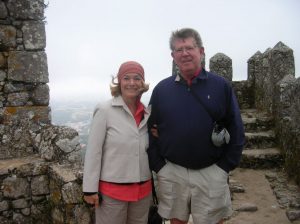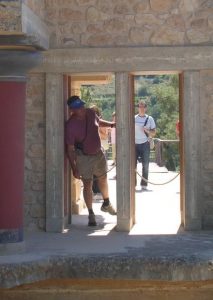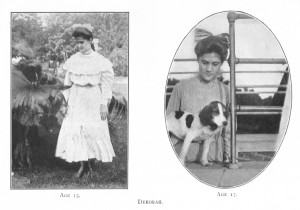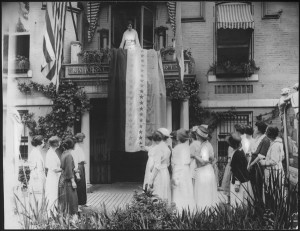Since my husband’s death in April, I have had one of life’s most important jobs: finding my way back to happiness.
I have always believed it is my obligation to the universe to thrive, and when grief, trauma, or misfortune hit, I treat recovery as requiring the same intensity of attention and commitment I pay to my work as a writer and professor.
It should be obvious that sifting through all the thoughts and emotions that engulf one at such times is hard mental (and sometimes physical) labor. Still, when I tell people that I am working hard on being happy again, generally they seem confused. “How do you work at being happy?” they ask. “Isn’t that a bit of an oxymoron?”
Since people really seem to want to know what I mean, I’ll try to explain. We think of gravity as the force that brought Newton’s apple down, but the root word, “gravitas” simply means heaviness. Sorrow, dissatisfaction, grief, displeasure are all weighty burdens causing us slip easily into a hole it’s hard to climb out. What we need is a counterforce to lift us up. Gratitude, for me, is a force powerful enough to ride all the way out of that hole, defying gravity in a whole new way.
Why is it important to practice gratitude? Because anything else is an insult to the universal force (whatever one believes it to be) that, as Jews say in the blessing known as Shehekiyanu, “creates us, sustains us, and enables us to reach this day.”
For those less cosmically inclined, gratitude is also practical: time spend outside a state of gratitude is time in which we are not healing. Anger, remorse, guilt, wishful thinking, even grief that focuses only on loss–are all hindrances to finding the peace that must come before any real happiness.
So I worked (and continue to work) at reconciling myself with how it could be that a healthy, active, lusty, and adventurous man had been invaded by a mutation that ate him alive and left him an emaciated and sallow corpse in a hospice bed just seven month after his diagnosis. Why it was that he had the bad luck to have such an aggressive strain of prostate cancer that even therapies that usually add several years to the life of patients added not a day to his.
There isn’t a why. What is, is. Jim knew this and said it often, not just about his cancer, but about everything he couldn’t change. I am so lucky to have spent the last eight years with a man who thought that way, for I realize now what a blessing it is to have an outlook that makes practicing gratitude natural.
What is, is.
Isn’t that the heart of the matter? Don’t we have to accept reality before we can find our way out of the holes into which life knocks us from time to time?
Jim and I practiced gratitude together until the end. As to the cards we had been dealt in life, any complaints simply died in our throats. Jim’s life gave him seven decades of opportunities, accomplishments, and many joys. He got to practice the science he loved in a lab that his many achievements kept funded. He did well enough financially to be able to afford a 40-foot Valiant sailboat and a beautiful Ventus glider, both of which gave him outlets for his boundless energy and centers for his identity. He traveled widely and read eclectically. He had the good sense to keep his wishes modest and within his means. We treated each other with the respect we hadn’t always gotten in previous relationships, which gave us an opportunity to heal each other’s wounds. Jim left this world honored and treasured by his family and friends, and deeply loved by me.
That was his reality. This is mine. I must face life without him, but I had an extraordinary and precious person in my life for a while. Eight years was not as long as we hoped, but it will have to be enough. I lost my love, but I had an experience of love that many people never get.
Life has given me six decades of opportunities beyond measure, successes of countless kinds, resources of every sort with which to face up to problems, and the vision to see and accept challenges as chances to make something wonderful happen. Straw into gold, lemons into lemonade, loss into gain, defeat into victory. All it takes is seeing it that way. Otherwise, straw, lemons, loss, and defeat just stay what they are.
I haven’t been either a Pollyanna or a Queen of Denial about my loss. I cried buckets at the beginning, and I still get teary (although briefly) most days. For a time, I did all I could to stay in that liminal world between being alive and dead, grasping at chances to feel I was with him again, if only for a moment. I still chat with him in my head, but acknowledge that the talk is therapy for me, independent of whether he is there to hear it. No, his death is real, and I have struggled hard, and so far successfully, to let him–and me–move on.
When I experience something beautiful, or amusing, or touching, I think of how much Jim would enjoy it, and I often cry. What my thinking comes quickly around to, however, is that those beautiful, amusing, and touching moments are in this world here and now, and so am I.
Our wounds move away from front and center in our lives when we put the past in an honored place, but don’t try to live there. I am ready and excited to continue reinventing myself, to make new friends, begin new activities, and–who knows?–perhaps even find love again. So I move forward, saying an ongoing thank you to the universe for Jim’s life and my own, and for the countless blessings of this and every day.
Shantih. Shalom. Peace.





